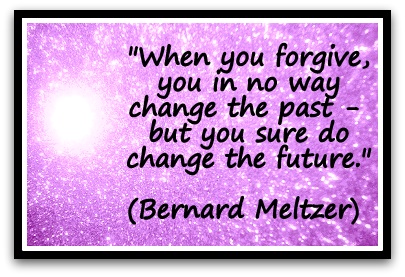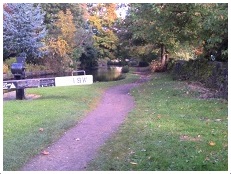TED Talk Tuesday 21st January 2014
This week’s TED Talk clip is: Thandie Newton: Embracing otherness, embracing myself
Clip length: 13 mins 52 secs
Prefer to watch on TED.com? In that case you’ll need to click here.
This week’s TED Talk clip is: Thandie Newton: Embracing otherness, embracing myself
Clip length: 13 mins 52 secs
Prefer to watch on TED.com? In that case you’ll need to click here.

“Time spent laughing is time spent with the gods.”
(Japanese proverb)

The Coaching Confidence Chatterbox is an interview feature with coaches where the questions are generated based on the origami fortune teller/chatterbox game.
Name: Emma Fowler
Name of your Coaching Business: Free your career
Website: www.FreeYourCareer.com
.
(The answers to the above questions are then used to generate a choice of numbers)
.
Select one of the following numbers 7, 2, 3 or 6: 7
“What do you look for when choosing a coach for yourself”:
A combination of coaching and training; a chemistry between me and the coach.
.
Select one of the following numbers 8, 1, 4 or 5: 1
“Tell us a bit about your coaching”:
I offer three different types of coaching:
There is no hard-and-fast rule to stick with one when I coach people, we deviate according to the needs of the client. Career coaching is my passion.
.
Select one of the following numbers 8, 4 or 5: 5
“What is your favourite way that a client has found out about your work?”:
I coached the husband of one of my clients when he changed from his long-term permanent career to contracting, because she was enjoying my service and liked that I might help her whole family rather than just her.
.
What question would you like to add to the Chatterbox for another coach to answer?:
What’s the most difficult situation you have faced as a coach and what advice would you give other coaches if they face the same?
.
How would you answer that question?:
It’s sometimes hard with existing relationships in your network to take things from a supportive conversation to a monetised consulting service, especially when you’re starting out.
In order to understand why someone should employ you as a coach, you need to value the service you are giving (and your time) and appreciate the significant positive impact your work will have on the person, in order to explain to a potential client why a relationship should transition to being a paid service (of course using discretion with friends!)
Thanks for playing Emma, if you want to find out more about her work visit www.FreeYourCareer.com.
If you are a coach and want to play with the Coaching Confidence Chatterbox send an email via this page.

“When you forgive, you in no way change the past – but you sure do change the future.”
(Bernard Meltzer)

Welcome to this weeks recap of blog posts for coaches from around the web.
Each Monday on this blogs Facebook page I usually issue the following question and invitation:
“Have you written/seen a blog post in the past week that you’d think is of interest to coaches and that you’d like to share?”
You’ll notice that the recap today is broken down into two lists – one of posts shared via our Facebook page from the Monday invite and one of other posts from around the web.
These are a few posts that also attracted my attention either personally or because of readers requests to read more on a particular subject…
Want your post included next week? If you have a post that you think will be of interest to coaches do take part in tomorrow’s Monday invite and leave the details on our Facebook page. Whilst it’s lovely for posts to be sent to me via twitter, the nature of a tweet means that it can easily be overlooked when this post is being compiled at a later time. Please leave links in one place, ie the thread on our Facebook page so they can be easily shared.

“Do not take life too seriously. You will never get out of it alive.”
(Elbert Hubbard)

“A little thought and a little kindness are often worth more than a great deal of money.”
(John Ruskin)
Many coach trainings will emphasize that counselling and coaching are two different services. In today’s guest post Julie Crowley, trained in both, shares a little about her approach and asks:

This is an area that I know is growing in popularity and familiarity with professionals too, including with the BACP (British Association for Counselling and Psychology), at least in theory so far. But in practice, it really does work, too. It is something I hadn’t really expected when I added coaching to my counselling business in 2006, nor the myriad of services that develop from this.
Counselling is described as ‘a talking therapy’ – the client explaining and sharing thoughts, ideas and feelings with someone who is unfamiliar to them – a stranger, at least at the beginning and it’s not easy. As a counsellor I reflect back to my client what I see, hear and believe they are saying. So we talk.
Learning to trust someone – when you say it out loud to them it makes it real and makes you accountable –risking judgement, and what has often happened elsewhere, rejection of them/their ideas and minimising feelings perhaps. It’s also a challenge to find the right words to explain your experiences in the world, and this is why it clarifies matters for clients too.
The reflection and acceptance (which is essential even if there is a later need to move on) is often new and unexpected for them; whilst trust develops, and mutual understanding, clients can also learn their own power with choices, options, and insights.
Our mind often skips the detail if it’s uncomfortable to confront, and dive straight into the feelings and emotions of guilt, anger, confusion or sadness, even shame, for example. Personal history is important, with experiences, beliefs and values all leading to current expectations and behaviours. These eventually lead client’s to understanding, self awareness and their “personal power”; but counselling is more passive than active in moving ahead, more focused on building a sound foundation to work from or overcoming a specific obstacle.
Coaching complements counselling for clients because at times they need hope and control, and action steps – however small – help with this. ‘Stepping back’ to see the whole picture, or understanding their boundaries and how to set them, or perhaps simply ‘be gentle with yourself’ with treats, relaxation or not expecting too much! These are ‘directive’ suggestions but which fit with counselling yet are proactive actions that can help clients reduce their anxieties.
 Coaching on the other hand, although it does involve talking is firstly not a therapy per se (although counselling skills are often required when barriers and obstacles arise) but more a discussion, a meeting -sharing ideas and thoughts, clarifying details and more proactive in moving along your life path towards your goals from a firm(ish) foundation.
Coaching on the other hand, although it does involve talking is firstly not a therapy per se (although counselling skills are often required when barriers and obstacles arise) but more a discussion, a meeting -sharing ideas and thoughts, clarifying details and more proactive in moving along your life path towards your goals from a firm(ish) foundation.
As a Career Coach I listen to people’s ideas of where they want to be in life and work plays a large part of this – or more than it perhaps should! We start from where they are, and together decide on the right path for them. I can share my ideas for their action planning, insights from experience, and again, reflect back on comments, needs and behaviours/beliefs that impact positively or negatively on their goals potentially that I can see from in their current situation.
Exploring what and why they believe that goal is for them and how achievable it might be or why not. We identify clearly when they could realistically achieve it and building in flexibility, adapting to the changes as they arise and acting as a sounding board and a reference point for monitoring change and progress (which is inevitable in coaching as we cannot unlearn what we know through experience!).
Coaching also aims to identify obstacles and detours as well as options and opportunities – the path is rarely smooth. (Counselling clients have usually come across an obstacle and are unsure how to cope with it).
Coaching may not be ‘therapy’ but it is therapeutic in that it changes negatives (feeling confused or stuck) to positives (hope, action, progress), and the title can be more acceptable for some people than counselling as it also moves people forward but perhaps less consciously and directional. The process is more proactive on both sides with written commitments on record, input from both parties and more practically challenges too (thought not necessarily more emotionally challenging than counselling can be!).
Coaching is a dynamic process as achievements are made and resources grow, paths change as do needs and options. It is ongoing and developmental (whereas counselling is not ongoing but resolves an issue with a beginning, middle and end e.g. builds resilience as but one resource). With coaching clients tend to move on, change, grow and learn from the process and find tools to use in future for ongoing change and development. Coaching offers more active personal control over your life, whereas counselling helps clients identify the power they could have perhaps and how to overcome their obstacle or anxieties.
Resolving personal issues that may have always been around is a by-product of coaching because inevitably in the stuck-stage that brings people into coaching, there are barriers that may need to be overcome and faced before progress continues. The counselling skills come in here with listening, reflecting and the basic person-centred approach of congruence (genuineness, honesty), acceptance (UPR) and empathy (in their shoes) all fall into place with coaching too.
So using one skill-set whilst working with the other clientele often brings about unexpected benefits, both for them and me. I have found that merging the skills within myself and offering them out to the client in a way that meets their individual needs leads to understanding, choices and options, which in turn offers “personal power” and control for them – and I get to use my full range of skills and passions, and continue to develop myself more too – challenge and stimulation for my clients and for me too!
I contract from the start that I might use skills from the both services, whichever service a client approaches me for, and always confirm I will raise this clearly and directly if I think it will help them. I haven’t yet had a client who refused this although I recognise they don’t understand how this could work until it arises, but generally it is relevant and so appreciated. But it can depend on the client’s own agenda for counselling especially, as this could be somewhere they want to share not act upon.
Both counselling and coaching are reflective for the client, both are working to resolve a feeling of being stuck in an unpleasant place in life, and both actively work toward changing this and resolving the issues raised – ‘for a better personal future’. But they are definitely different in approach, and in how outcomes are achieved for the client. Both help and progress people’s lives but emotionally or practically, and counselling is emotionally more challenging perhaps – but it does depend on the client and their situation and their real needs.
Please feel free to ask questions, raise points or queries on this or any of my own blogs and posts elsewhere too (I do enjoy a good debate where it helps!)
Julie Crowley, Personal Counsellor and Career Coach based in Lees, Oldham under Clear Mind Life Coaching & Counselling. The aim is for people to explore their issues and resolve them, explore their potential, and work towards achieving it (if they wish to), discover and develop their “personal power” to create the life they want to live, with informed choices, effective decision making and positive relationships using their strengths and managing areas that can be further developed…
‘For a better personal future’
More information:
www.clearmindco.co.uk is about personal development and relationships
Facebook – Twitter – Linked in
Networking options with CLEAR Connections on my website and on Facebook and Twitter
including Here Come the Girls on Facebook and Twitter